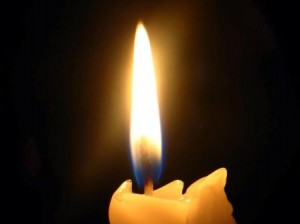I am proud of the morals and ethics the Israel Defense Forces strives to uphold. While Israel, and the Israeli Army, is determined to destroy the Hamas terrorist regime whose sole purpose is the destruction of the State of Israel, it goes out of its way to prevent collateral damage, to prevent the death of innocent civilians. Even with that being the case though, this is impossible in Gaza. It is impossible when there are 1.8 million in such a small radius. It is impossible when Hamas isn’t interested in building an infrastructure. It is impossible when Hamas is more interested in building tunnels to sneak into Israel and enact terror than they are in building bomb shelters to protect their own people. It is impossible when Hamas stores rockets in mosques, hospitals, and schools. This past Friday, the IDF stated that terrorists opened fire, firing mortars and anti-tank missiles from within a United Nations Relief and Work Agency (UNRWA) School. It resulted in the death of Staff Sgt. Guy Levy. Staff Sgt. Levy was hesitant to shoot into the school for fear of harming innocent civilians.
This came a day after news broke that a UN School what served as a refuge and safe house for some 1,500 men, women, children, and elderly, was hit. Media was quick to judge that it was hit by the IDF. Israel would not confirm this. Israel suggests that this was actually a result of Hamas misfiring one of their rockets, an errant missile hitting the school. It is unclear at this point who or what caused the strike. What is clear is that 16 people are dead, another 200 wounded. None of them soldiers. None of them terrorists. None of them intended targets. All of them a tragedy.
Last past Shabbat, we finished reading Book of Numbers, reading the final Torah portion in Bamidbar, Parashat Mas’ei. The Torah portion recounts the journey of the Israelites in the desert, as they stand on the banks of the river Jordan, preparing to enter the land of Canaan, preparing to enter the Promised Land. Once the Israelites enter the land, one of their first orders of business is to set up Iray Miklat, Cities of Refuge. Miklat is the modern Hebrew word for bomb shelter, where Israelis have spent way too much of their time over the last few weeks. When I lived in Jerusalem several years ago, we used our Miklat was a storage closet. I never could’ve imagined needing to use it to stay safe. Now it is refuge for millions.
We are instructed to set up Cities of Refuge in the Torah because our tradition clearly distinguishes between intentional murder and accidental death. It makes the distinction between intentionally striking another with stone, iron, or wood and accidently hurting someone without malice.
Hamas targets civilians. Israel does all it can to avoid civilians. It warns individuals to leave the area; the IDF gives them a head’s up that there are terrorists in the area and urges civilians to evacuate. That is just. Yet, there are few places to evacuate to. The best efforts by the IDF to be ethical in their pursuits doesn’t change the fact though that there are dead children, that there are innocent lives lost. Some say that is the reality of war. Our Torah reminds us that unintentional loss is simply reality of life.
Yet, knowing the realities of war, and the realities of life, we must do all we can to limit the need for such metaphorical Cities of Refuge. We must do all we can to limit such unintentional loss, because the reality is that loss is loss. Families grieve. Bloodied bodies are buried.
During the mournful three week period between the 17th of Tammuz and the 9th of Av on the Jewish calendar, we acknowledge the violence that God witnesses in the Promised Land. In Lamentations, read on the 9th of Av, God reacts to the destruction, to the death, to the violence, that occurs in the Holy Land:
“My eyes fail with tears, my innards burn. . .because the young children and the sucklings swoon in the broad places of the city.” (Lamentations 2:11)
God mourns such loss, be it intentional or unintentional. God cries. And we cry too. Our eyes fill with tears as we hear of lives lost, brave young men and women of the Israel Defense Forces defending our homeland, and innocent Palestinian men, women, and children who are trapped by Hamas’ terrorist regime. We seek symbolic Cities of Refuge as we acknowledge and atone for innocent lives lost in Israel’s fight against terror. And we pray. We pray for an end to the violence. We pray for an end to loss of life. We pray for mercy.
Our blood is the same color – and too much of it has been spilled. May we work to no longer have a need to build symbolic Cities of Refuge. May we build towards a day when there will no longer be such loss of life.
During this three week period of fighting,the lives of an entire generation of Israeli and Palestinian children have been forever changed. Their views of the future are tainted. Their hope in the future is lost. Mine is not. May we teach these children to live. May we teach these children to live together. May we teach these children the importance of peace. And may we never stop working to make that peace a reality.
– Rabbi Jesse M. Olitzky








